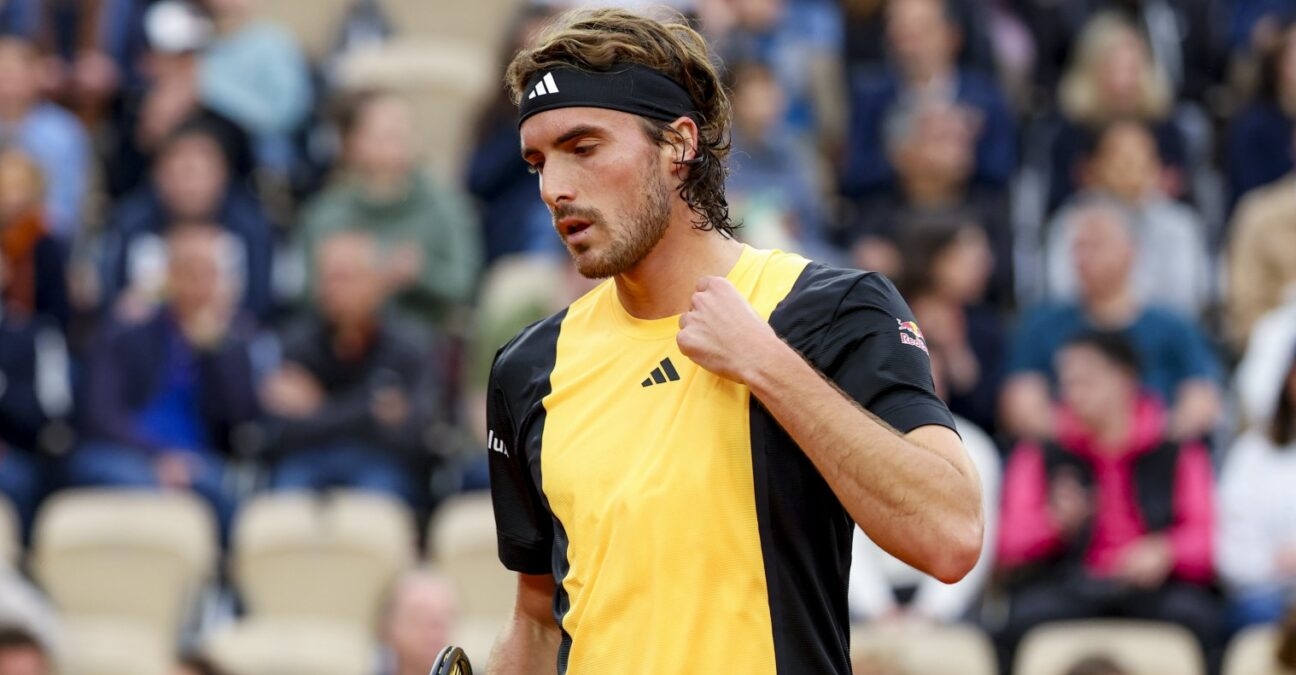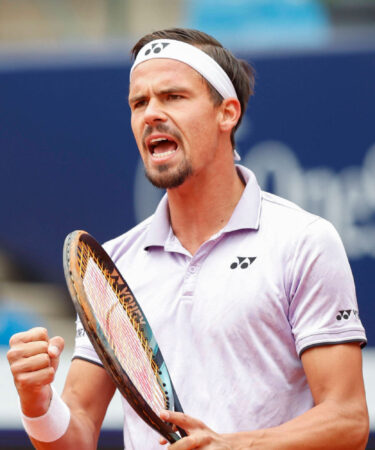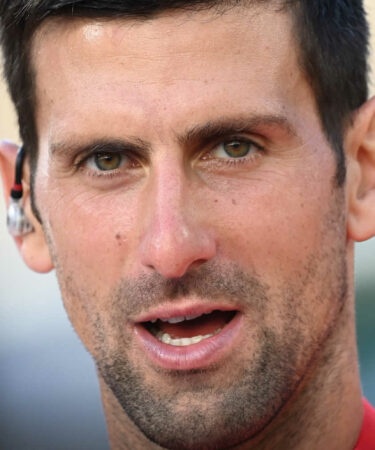Under the radar Tsitsipas happy to avoid “fifth-set adventures” as he cruises into last 16
Getting embroiled in long matches early on in slams has been costly for the Greek in the past
 Gepa / Panoramic
Gepa / Panoramic
For Stefanos Tsitsipas, the road toward his dream of Grand Slam glory has not been straightforward. The Greek has made it to two finals, here in Paris in 2021 and in Australia in 2023, but found Novak Djokovic blocking his path on both occasions.
At Roland-Garros this year, he’s going somewhat under the radar, with attention focused squarely first on Rafael Nadal and then on the fitness or form, or otherwise, of the likes of Novak Djokovic, Jannik Sinner and Carlos Alcaraz, despite the fact that Tsitsipas and Paula Badosa’s relationship captures plenty of column inches.
Tsitsipas probably enjoys that, but what he’s also enjoying so far is the fact that he has yet to become embroiled in a first-week battle, testing his physical and emotional limits. That’s a good sign because historically, when he eases through week one, he goes a long way.
In Paris in 2021, he went on to reach the final, having lost just one set before the semi-finals (in the third round). At the Australian Open in 2023, he didn’t lose a set in week one, saving energy for the more difficult tasks ahead.
Stats show importance of efficiency in week one
On Wednesday, under the roof on Court Suzanne Lenglen, Tsitsipas flirted with a five-setter, going down a break in the fourth against Daniel Altmaier, before turning things around and finishing it off in four. Avoiding a marathon, he said, is always a good thing.
On Friday, he motored past China’s Zheng Zhizhen in just over an hour and a half, playing beautifully and serving brilliantly, never allowing his opponent a chance and conserving energy for the tougher challenges ahead.
“Well,these are situations that sometimes are not under your control,” Tsitsipas said. “You know, you have an opponent on the other side of the net and it’s not something that you can entirely control on your own.
“What I try and do is respond to the different threats and play that comes from the other side of the net and adapt to those, well, situations or tactics that might be a possibility that they are trying to construct against me.
“Of course you would want to save energy and save concentration for deeper runs into the tournament where you find yourself in the second week. These are preferably situations that you would want to maybe, if there was five sets, you would want to save it for those occasions.
“But I’m happy I got away from that bad situation (against Altmaier) that I was being faced with later during the match, and had a great comeback, was very patient with myself and dealing with my emotions. I can only be proud of that.
“I am happy I didn’t go into a fifth-set adventure, as I like to call it, and find myself in maybe situations that suddenly you see a completely different story line of the match.
Five-set matches are an added complication
At Roland-Garros in 2022, Tsitsipas was heavily fancied to win the title but was pushed to five sets in the first round and four sets in the second. By the time he got to round four, he was fatigued and was surprisingly beaten by Holger Rune.
It doesn’t always stand to reason, of course. Sometimes players come through five-setters early on and grow in strength as the tournament goes on. In Australia in 2022, Tsitsipas played nine sets in the opening two rounds and still made the semis.
On Wednesday, Altmaier forced Tsitsipas to raise his game again to claim the win in four sets and the Greek is well aware of the importance in keeping it short-ish.
“It’s a complicated situation to see yourself two sets to love up, you’re playing great tennis, you’re executing a game plan perfectly. Your opponent seems like he’s out of control. Suddenly he gets back from a toilet break, he starts playing really good, pumped. Not something that happens that often when you see an opponent being more pumped in the third set being two sets to love down rather than the first two sets that what we got to play was a completely different scenario and the plot shifted.
“We started playing man to man with the same intensity and the same frequency, in a way, it felt like. The tiebreaker was really not that pleasant for me. But I have been through situations like this before and they are complicated to deal with.
“One thing you don’t want to happen is to lose control of your emotions. This is something that can really be a big threat when you start losing control of your emotions and feelings and start to overanalyse the situation, how did that happen, everything seemed under control and now it’s not.
“But in my case, I knew that I’m getting there. Break of serve on clay, of course it’s an advantage but it’s not the biggest advantage. I can still fight my way through it. I think what I did there was try to calm myself about the situation and maybe accept what’s happening. Acceptance was the thing that helped me get away from that situation and find my way back to the winning spot again.”
Monte-Carlo win a turning point
Tsitsipas said winning in Monte-Carlo, for the third rime in four years, had put him back on the right track after a difficult start to the season.
“Not having a win in few months and regaining my strength and walking away from Monte-Carlo with a victory, it brought me back into a great mindset of I have now this under my belt, and I can really proceed with great confidence towards the next clay court tournaments,” he said.
“As an athlete, having titles like this under your belt is important walking into a tournament like Roland Garros, which has great history. I would say it’s obviously a surface very familiar to the one in Monte-Carlo.
“I find it important for me to know that I have good wins, good runs in tournaments. It for sure adds up to your confidence starting with a (first) Grand Slam.”










